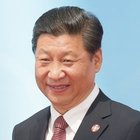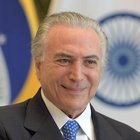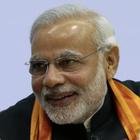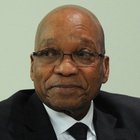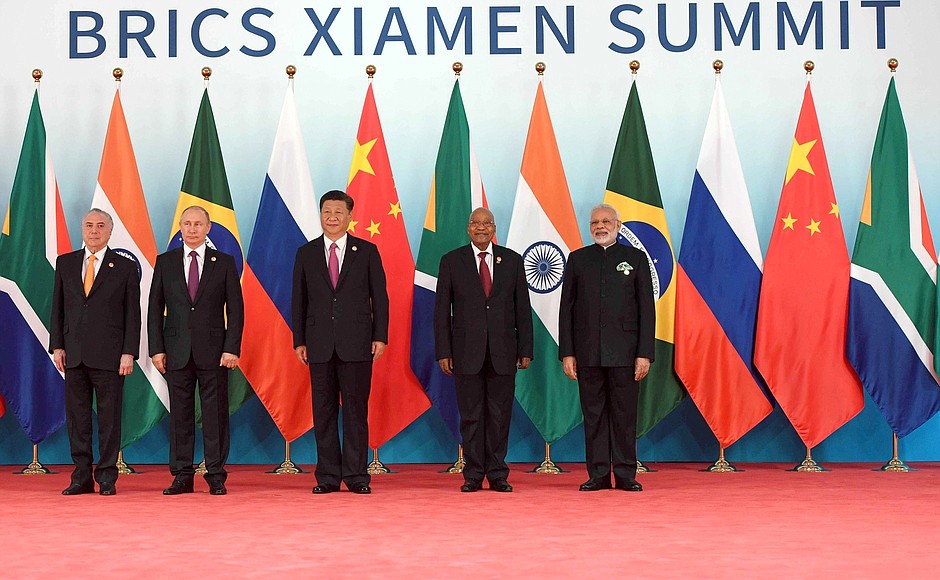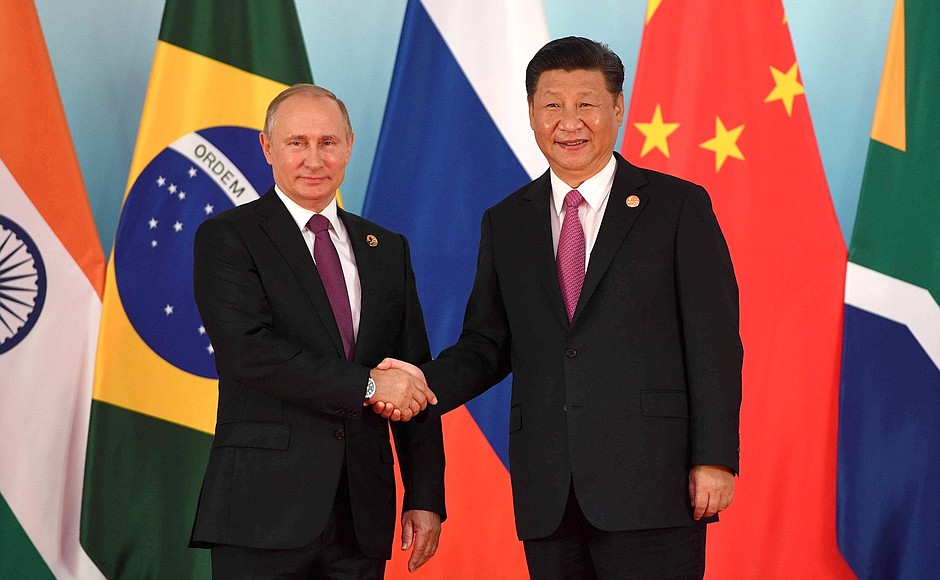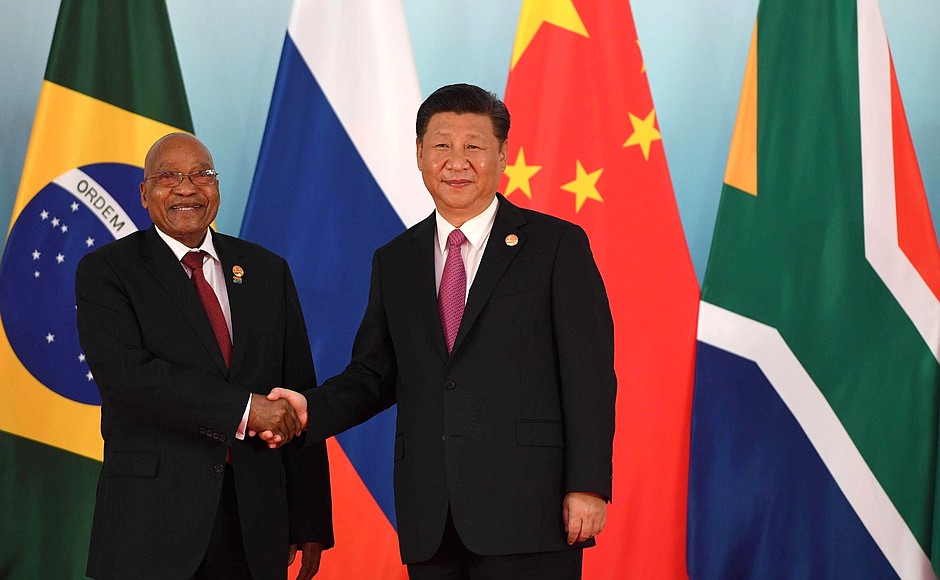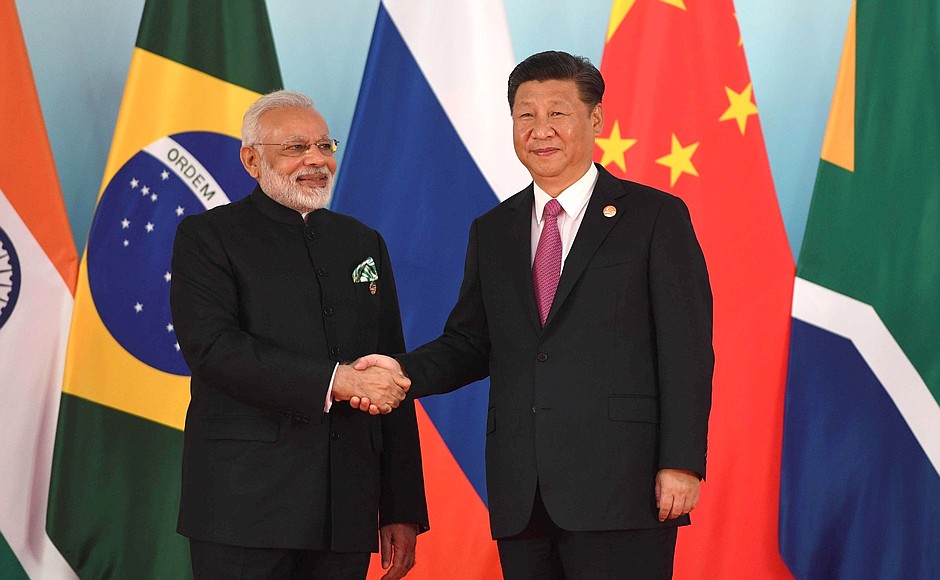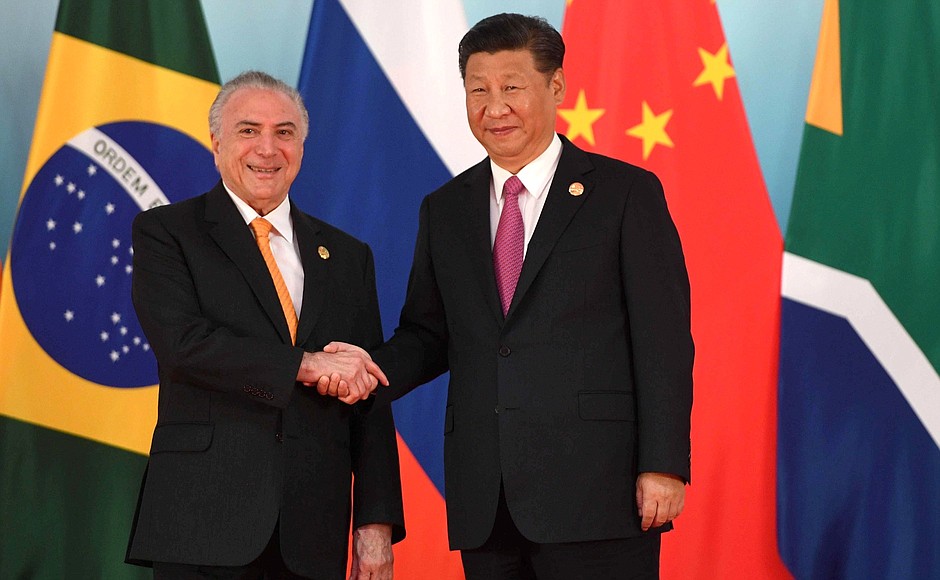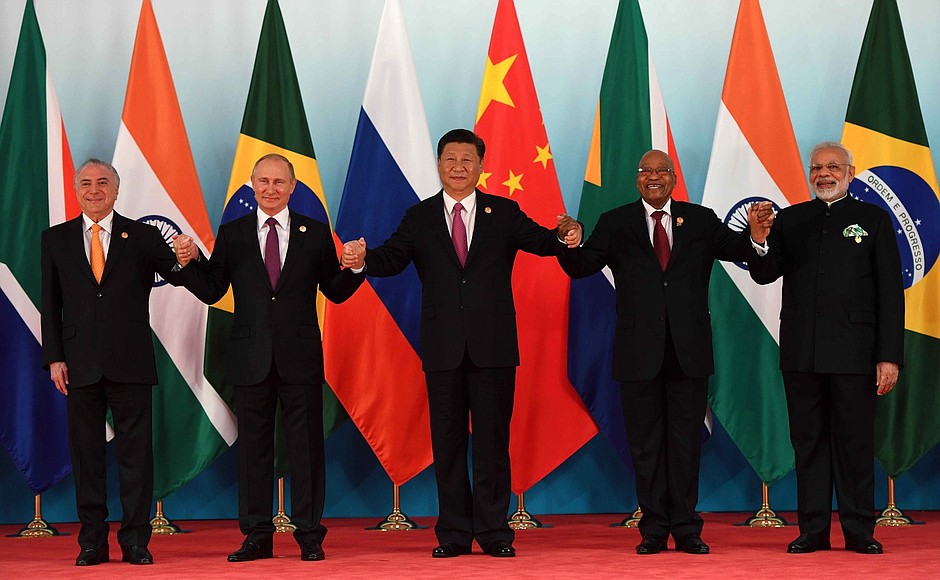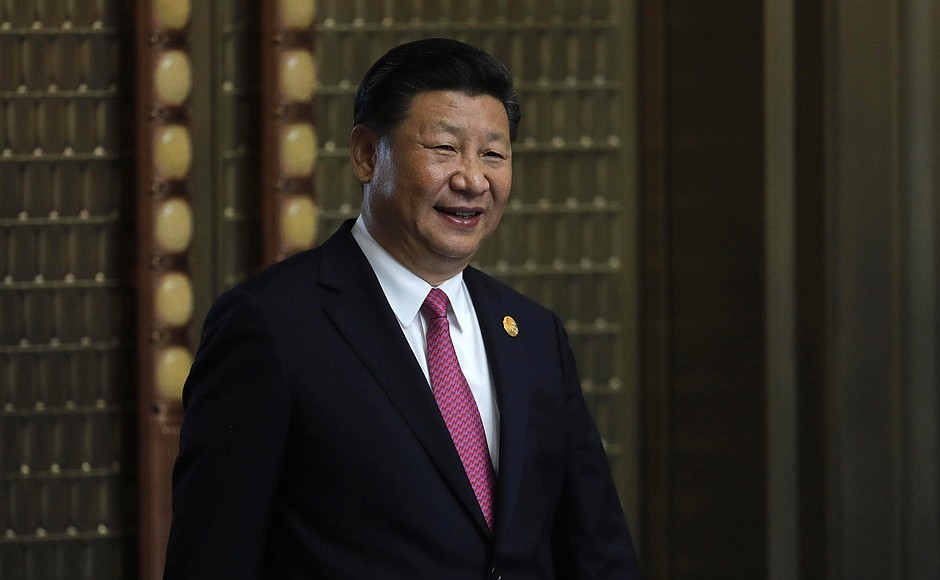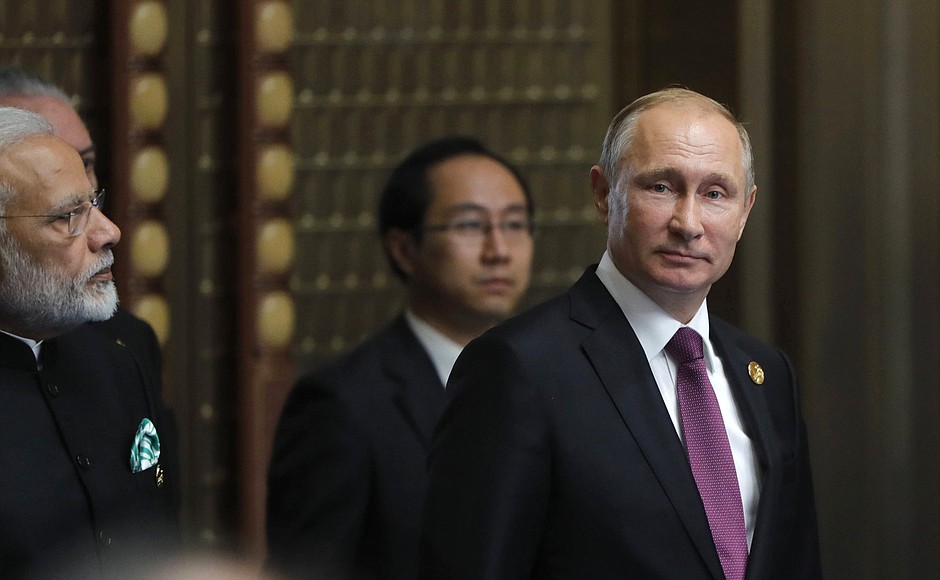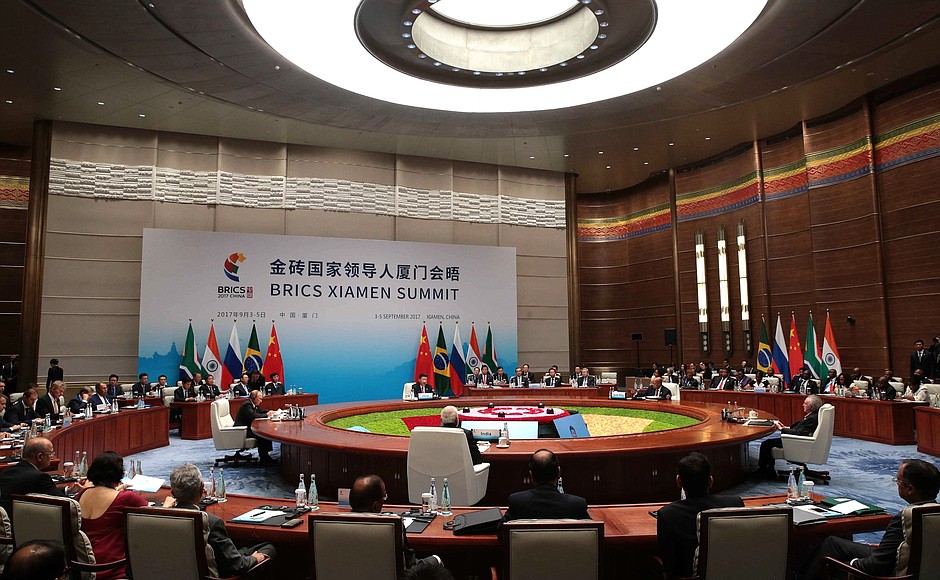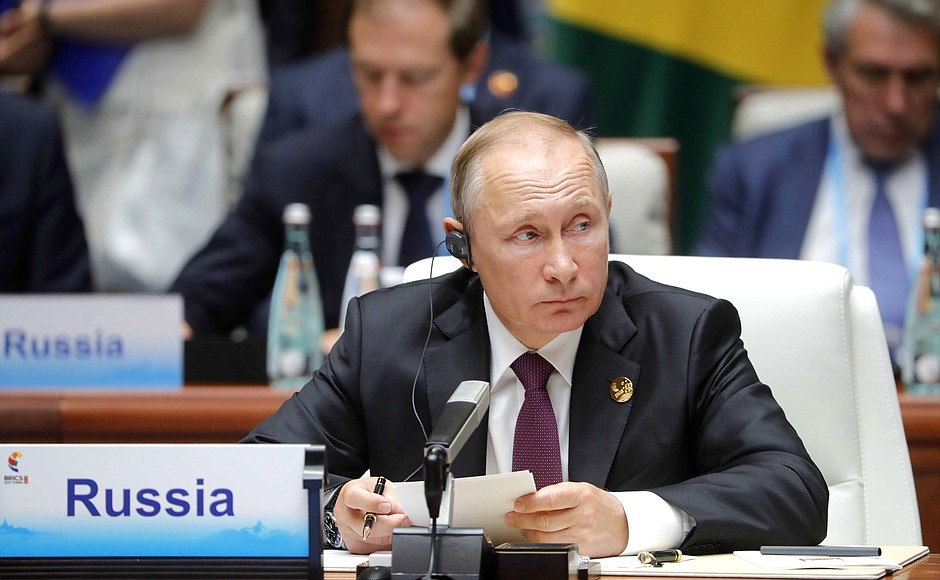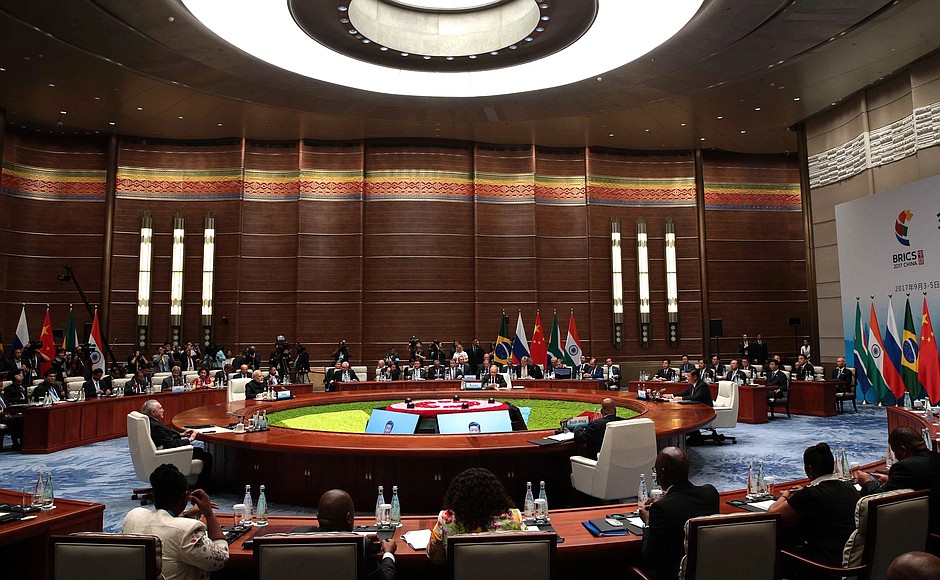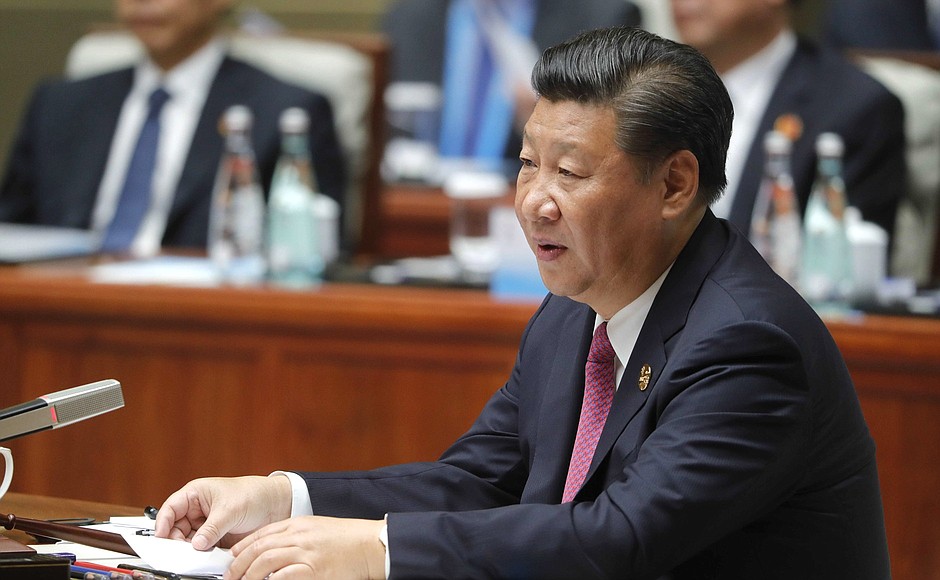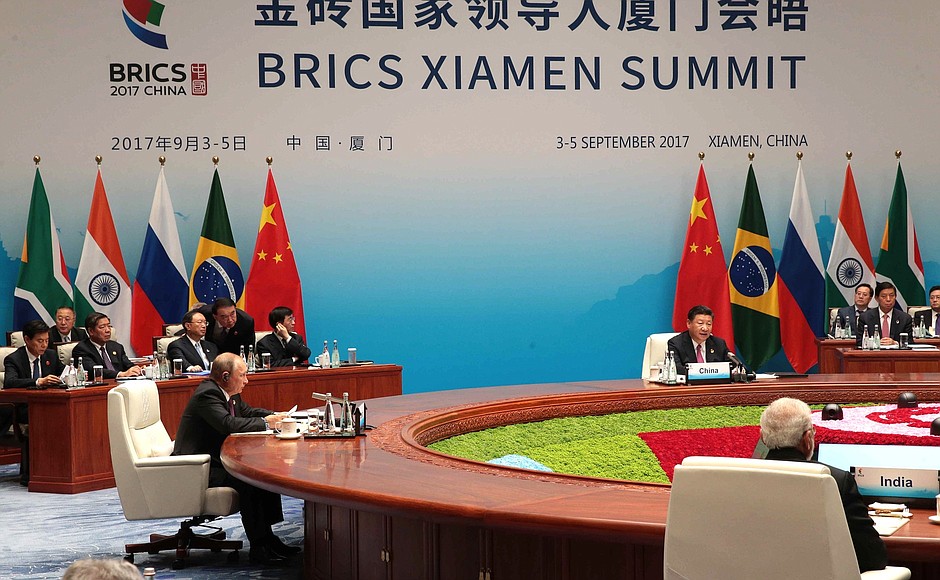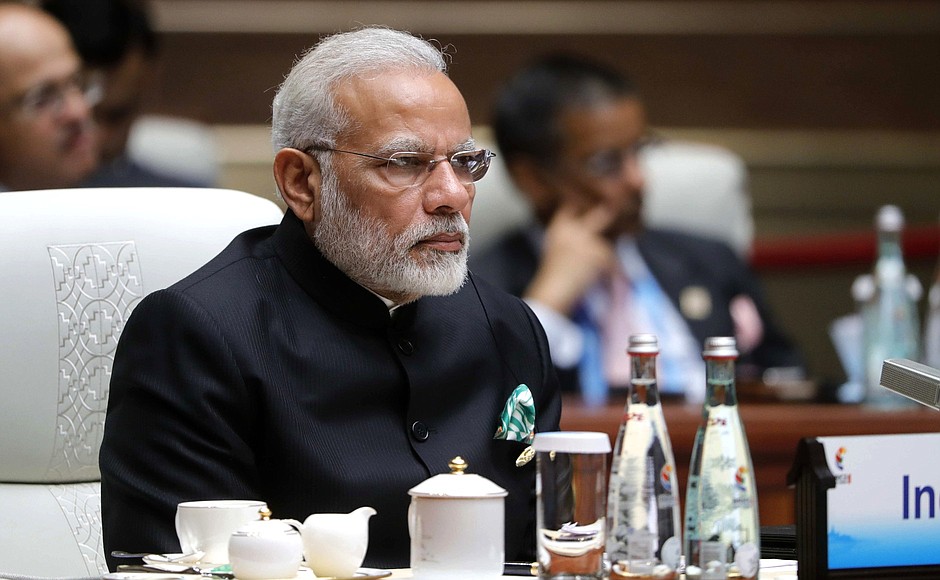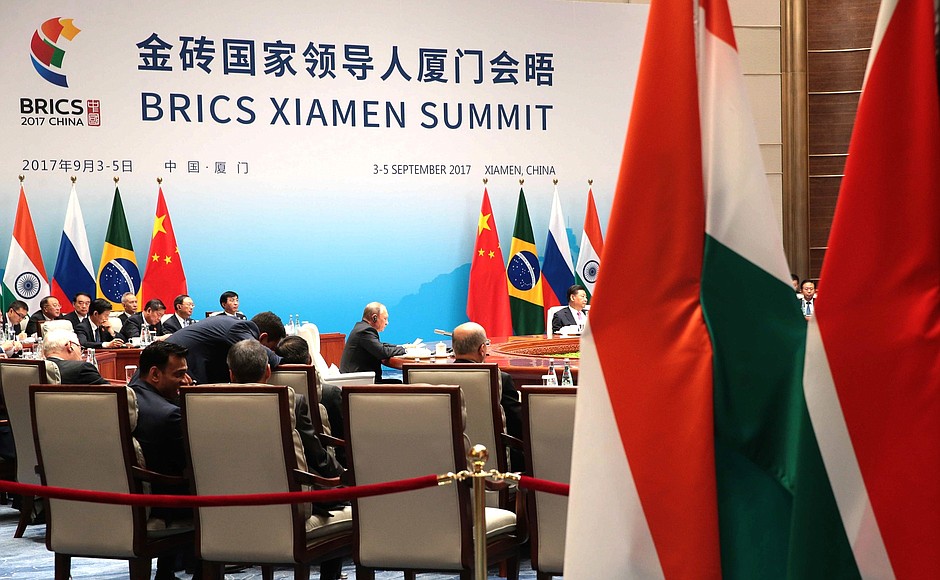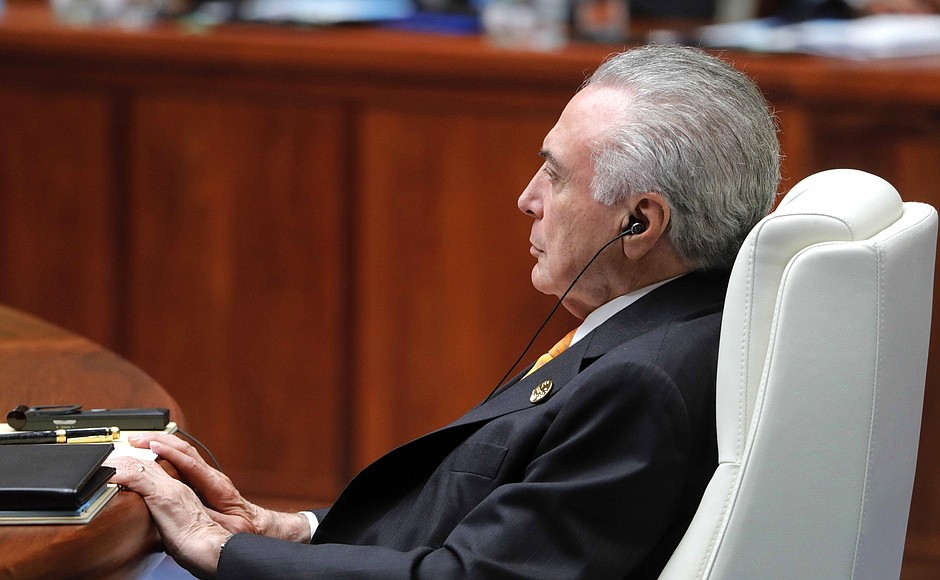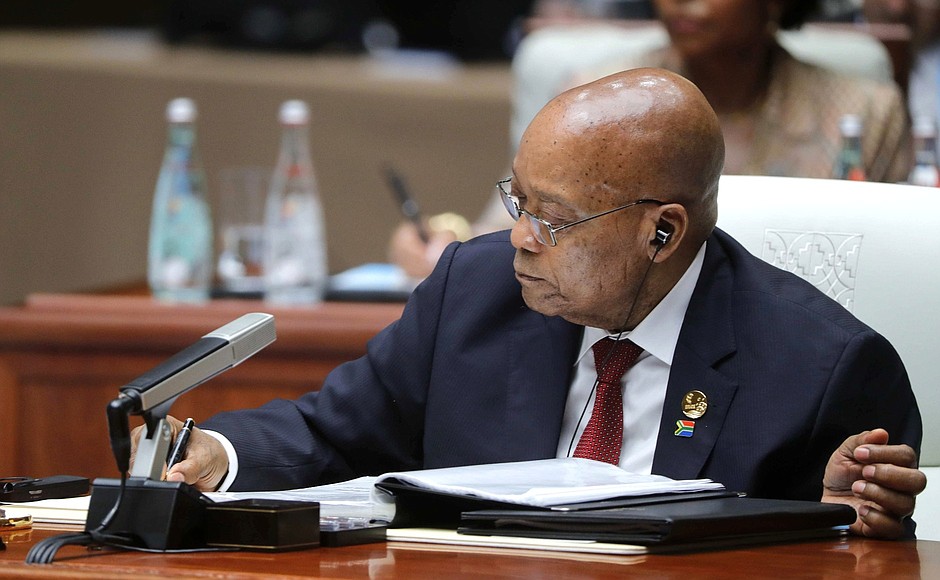President of Russia Vladimir Putin, President of China Xi Jinping, President of Brazil Michel Temer, Prime Minister of India Narendra Modi and President of South Africa Jacob Zuma met in a restricted format before their delegations joined the consultations.
The discussion focused on the global economy and global economic management, international and regional conflicts, national security and development issues.
The BRICS Leaders’ Xiamen Declaration was adopted following the meeting.
* * *
Speech at the BRICS leaders' meeting inthe extended format
President of Russia Vladimir Putin: Colleagues, friends,
To begin with, just like the other participants in this meeting, I would like to express gratitude to President Xi Jinping for bringing us together at this wonderful place where he had worked for many years to contribute to the development of this city and region. I believe that all of us have enjoyed visiting yet another wonderful province in China, which has been developing so rapidly and looks so wonderful.
Relations between the BRICS countries have developed to the point of comprehensive partnership over the past few years. We have been working together to find answers to the biggest threats and challenges to peace and stability. Our countries come together to address vital socioeconomic issues, or more precisely, to modernise national industries, develop high technologies, promote competition and improve the living standards of our people.
It is gratifying that these issues have added to the priorities of China’s chairmanship this year. I would like to thank our Chinese friends for their hard work to diversify and build up practical cooperation between the BRICS countries and for their commitment to the principles of continuity and sustainability in the work of all BRICS agencies. I am convinced that the implementation of the initiatives put forth by our Chinese colleagues will contribute to the further development of cooperation within BRICS.
Colleagues, one of the key items on the agenda of today’s meeting has to do with adding momentum to the operations of the New Development Bank (NDB). A number of major investment projects have been prepared for the NDB, and three of them will shortly be launched in the Russian Federation.
These projects consist of initiatives designed to improve the judiciary, build a motorway near Ufa, which by the way hosted the BRICS Summit two years ago, as well as modernise water systems in cities along the Volga River.
I believe in the importance of this year’s decision to establish a technical assistance fund for preparing projects within the NDB. The NDB’s immediate tasks include obtaining an international credit rating, which will enable it to issue securities in the five participating countries. In addition, there is also a need to move forward with lending in the national currencies of the BRICS countries.
Efforts to promote the BRICS contingent reserve arrangement and step up sharing of macroeconomic information have also gained considerable momentum, which is also important. We need to fast-track agreements to establish a BRICS bond fund and promote the integration of our capital markets.
We are grateful to our Chinese colleagues for preparing a detailed report on the progress achieved by our countries in implementing the BRICS economic partnership strategy that was adopted during Russia’s BRICS Presidency in 2015. It is time to adapt the strategy to today’s economic realities and set new and ambitious goals.
We believe that these efforts should be aimed at promoting barrier-free online trade, as has already been mentioned by our colleagues, supporting SMEs, and enhancing the efficiency of public-private partnerships.
The five BRICS countries should also step up their energy dialogue. To this effect, Russia proposes creating a BRICS platform for energy research, which could help promote industry, analytical, academic exchanges, and data sharing.
It would also be advisable to develop joint measures for ensuring fair competition across the BRICS space. We hope that our partners will also support Russia’s initiatives on female entrepreneurship.
Our countries could be effective in working together on space exploration. For example, we could agree on creating a remote sensing satellite system in order to monitor climate change, protect the environment and provide natural disaster response.
Cooperation between the BRICS countries in healthcare is certainly useful. We need to create a firm legal framework within BRICS on international information security and consider the possibility of launching cooperation between our media, including the creation of a BRICS television network to promote objective coverage of our activities.
We should continue to strengthen our cultural ties and redouble efforts to implement the agreement on cooperation in culture and sports, as Mr Zuma has said. This agreement was signed on the sidelines of our summit in Ufa.
I am pleased that a Russian film won the Best Director Award at the BRICS film festival. This is a film about the heroism of our people during the Great Patriotic War, during World War II.
We will be happy to see performers from the BRICS countries at popular international music contests that are held in Russia.
Another major achievement of our five countries is the creation of the BRICS Network University, which unites over 50 leading universities from our countries.
President Xi Jinping has pointed out positive trends in the South African economy. In conclusion, I would like to say in this connection that Russia is deepening cooperation with its BRICS partners alongside its efforts to overcome an economic crisis.
Our economy has resumed growth. It is not as impressive as in India or China, yet we are satisfied to report economic growth of over 2 percent.
We have brought down inflation to a record low of 3.5 percent, and expect the inflation rate to be 3.7–3.8 percent by the end of the year.
Investment in fixed assets, both internal and external investment, has increased by some 4 percent. We can also report the growth of our trade, which reached 25 percent in the first half of the year, excluding the oil and gas sector.
The unemployment level is at a historical low of some 5 percent. The Central Bank’s gold and currency reserves are growing. Industrial production has reported a sustainable growth of 2.6 percent, and the growth rate is even higher in the agriculture industry.
Colleagues, I believe that our joint work, which is designed to integrate our economic efforts towards not only economic growth but also the wellbeing of our people, is a vital factor of our common development and should encourage us to further strengthen our cooperation.
Thank you for your attention.
